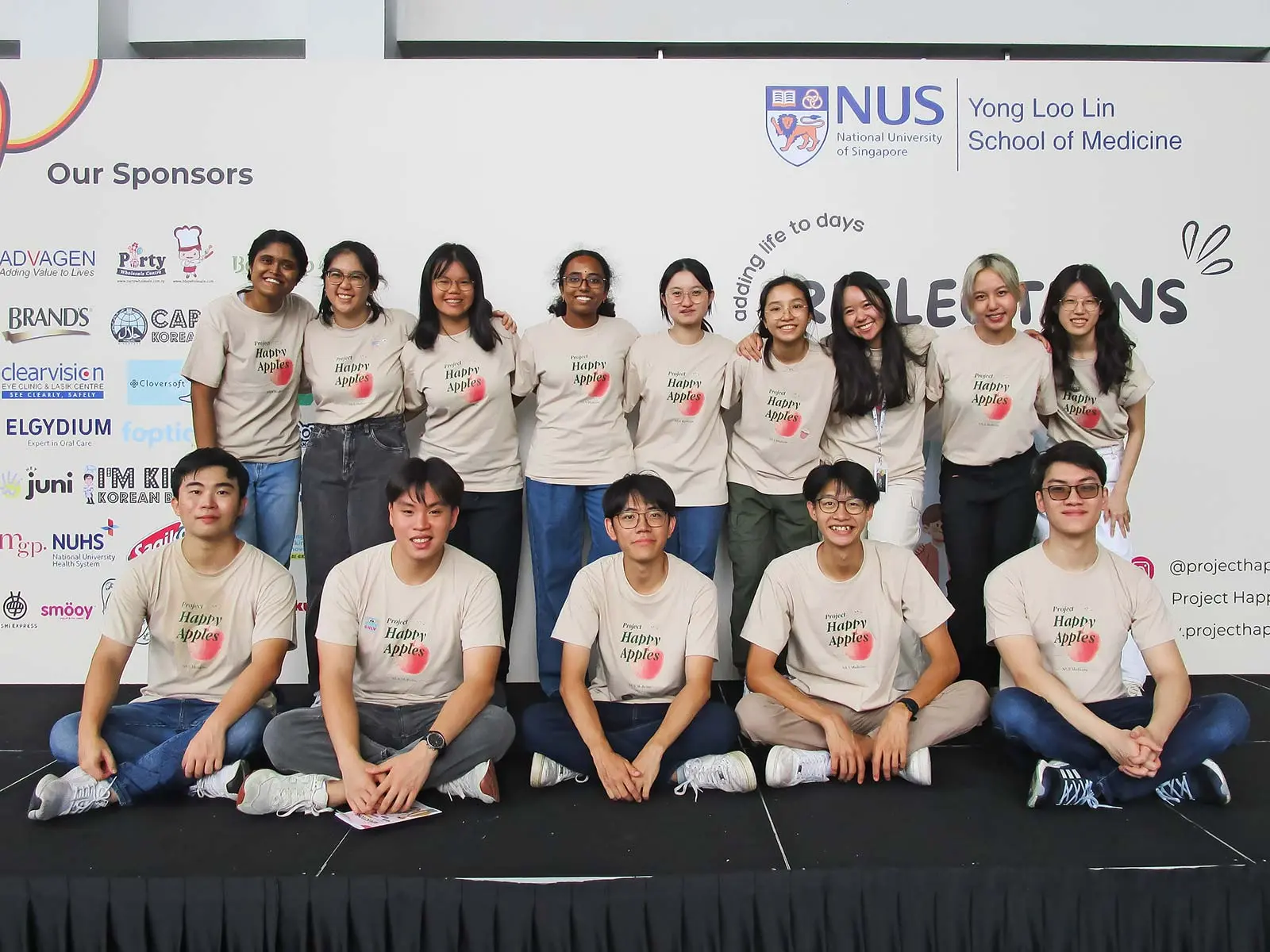
Dean’s Message
Nov 2024
DEAN’S MESSAGE

In 9 months’ time, we will mark the 120th anniversary of the establishment of the NUS medical school. When Mr Tan Jiak Kim and other local business leaders raised funds to help set up Singapore’s first institution of higher learning for Medicine in July 1905, they had in mind the training and education of doctors to attend to the health needs of the local population. Over the course of 120 years, the School that they helped to build has faithfully lived up to their expectations. It has educated and trained generations of doctors. However, the school that would also be the genesis of the National University of Singapore has also gone further and become a leading biomedical research institution in Asia, generating new knowledge through translational research that is helping to address diseases while helping to shape the practice of Medicine. Take the struggle against cancer, for example.
Based on the earlier seminal work of Professors Dario Campana and Allen Yeoh, a combined team from NUS Medicine and the National University Health System has successfully trialled a new approach in the fight against relapsed or chemo-resistant T-cell acute lymphoblastic leukaemia (T-ALL), particularly for patients who have exhausted all standard treatment options.
The new cell therapy is a potentially effective treatment for T-ALL patients who have exhausted all standard treatment options. Published in the prestigious medical journal Nature Medicine on 3 September 2024, the study highlights the effectiveness of a new chimeric antigen receptor (CAR) T-cell therapy.
The therapy was given to 17 patients between April 2019 and October 2023 at the National University Hospital (NUH) in Singapore and Ospedale Pediatrico Bambino Gesù in Rome, Italy. All 17 patients in the trial, ranging from 2 to 72 years of age, had T-ALL that could not be eliminated with chemotherapy or had relapsed after treatment. Using a technology developed in Prof Campana’s laboratory under the Department of Paediatrics at NUS Medicine, the patient’s own T-cells were reprogrammed to express an anti-CD7 CAR, and then re-infused into the patients. The anti-CD7 CAR protein redirects the CAR T-cells to kill T-leukaemia cells that have CD7 protein on their surface.
Notably, 16 of the 17 patients achieved complete remission within 1 month, and leukaemic cells became undetectable even with ultra-sensitive flow cytometry tests that can detect 1 leukaemia cell in the background of 10,000 normal cells. The treatment was well-tolerated, and side effects were mild, given the fact that all patients enrolled had a high tumour burden and had received prolonged and intensive treatment prior to CAR-T therapy.
T-ALL accounts for approximately 10% of ALL cases in children and 25 to 30% in adolescents and young adults. Although 70 to 80% of children are cured with intensive and prolonged chemotherapy, the cure rate in adults remains at approximately 60% or lower.
The school that would also be the genesis of the National University of Singapore has also gone further and become a leading biomedical research institution in Asia, generating new knowledge through translational research that is helping to address diseases while helping to shape the practice of Medicine.”
Patients with relapsed or refractory T-ALL have less than 10% survival, while in this series, 50% survived. This fratricide-resistant CD7 CAR-T therapy is being trialled in NUH.
Consider yet another milestone in cancer research involving our scientists, this one in gastric cancer. The disease remains a formidable adversary, ranking as the fifth most common cancer and the third leading cause of cancer-related deaths worldwide, with over 1,000,000 new cases and close to 770,000 deaths each year. In Singapore, gastric cancer ranks among the top 10 causes of cancer-related deaths and claims about 300 lives each year.
The peritoneum, the lining of the abdominal cavity, is frequently involved in advanced stage cancers, including gastric, colon, pancreatic, and ovarian cancers. For gastric cancer, the peritoneum is, in fact, the most common site of metastasis, both before and after treatments. Patients with gastric cancer peritoneal metastases (GCPM) often face an exceptionally grim prognosis, with severe symptoms and rapid disease progression. Median survival rates range from just 3 to 6 months, and 5-year survival rates are usually below 5%. Therapeutic options are currently limited.
In a major breakthrough, the research team from the NUH, the National University Cancer Institute, Singapore (NCIS), NUS Medicine, the National Cancer Centre Singapore (NCCS) and Duke-NUS Medical School, utilised cutting-edge genomic and transcriptomic technologies to analyse a vast collection of patient samples. This in-depth analysis provided an unparalleled understanding of the molecular underpinnings of gastric cancer peritoneal spread. The new findings not only shed light on why gastric cancer cells tend to metastasise to the peritoneum, but also pave the way for the development of innovative therapies to target the cells and molecules surrounding the tumour—also known as the tumour microenvironment, potentially disrupting the cancer’s ability to thrive in the peritoneum.
The years since the setup of the NUS medical school have seen phenomenal advances in biomedical science. As we look forward to commemorating 120 years of medical education in 2025, we can take quiet pride in the role that NUS Medicine scientists and clinicians have played in helping to extend the frontiers of Medicine.

More from this issue



